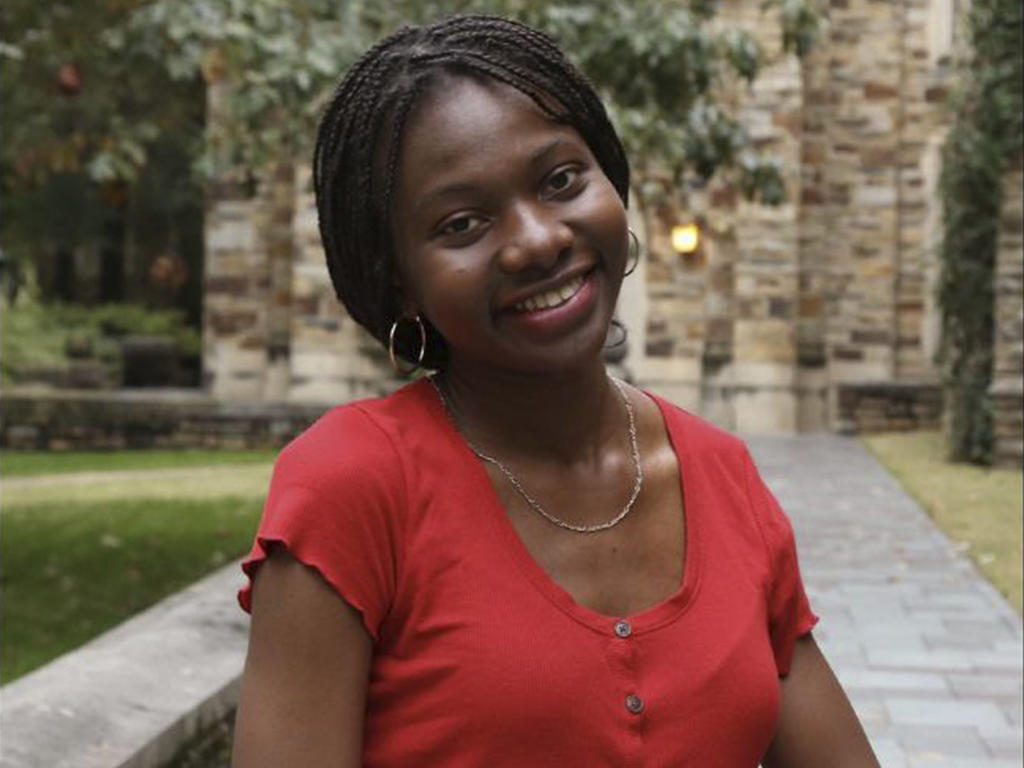Maleelo Shamambo, a neuroscience major and French minor at Rhodes College, is one of only 47 graduating college seniors nationwide to receive the Thomas J. Watson Fellowship, which provides a $36,000 grant for one year of independent study and travel outside the United States.
Members of the 52nd Class of Thomas J. Watson Fellows have proposed a broad range of projects to explore, from rare diseases to criminal justice to female filmmakers to nuclear energy. The program is designed to produce a year of personal insight, perspective, and confidence. Watson Fellows decide where to go and when to change course. They do not have to affiliate with an academic institution or hold formal employment. However, due to the coronavirus pandemic, international travel this year may be limited to certain areas. In some cases, awardees may be given the options to delay the start or defer their journeys.
Shamambo’s project is titled “Pills and Potions: Indigenous Knowledge in Modern Medicine,” with proposed destinations of France, Morocco, Senegal, and Martinique. She seeks to explore how different communities integrate traditional knowledge systems into modern science and medicine while charting the traditional and scientific value of indigenous medicinal plant specimens.
“This project is close to my heart, because representation and inclusion are among some of the biggest challenges for the science community that sometimes go unaddressed,” says Shamambo. “I hope to go on an exploration of what it means to be an African woman in STEM. I’m interested in the representation of Africans and people of African descent in science, as well as how communities with colonial histories, like mine in Zambia, can encourage more people to get involved in modern scientific research without feeling alienated from their own traditional knowledge systems.”
Shamambo has worked at St. Jude Children’s Research Hospital as a St. Jude Summer Plus Fellow under the direction of Dr. Jian Zuo and Dr. David Solecki, investigating molecular mechanisms of hearing loss and neuron migration as they relate to childhood cancer.
"It is a pleasure and an honor to see Maleelo’s exceptional accomplishments recognized by the Watson Foundation. Her passion for global health is inspiring, and she is an example of our students ready to tackle the world’s most pressing problems. We are incredibly proud of her and look forward to the impact she will make in the future,” says Rhodes President Marjorie Hass.
In 2017, Shamambo was presented with the Award for Excellence in First-Year Biology at Rhodes, and in 2019, she was inducted into Phi Beta Kappa, America’s oldest collegiate honor society.
“I am so blessed to have found a home away from home within the Rhodes community, from friends all the way up to the faculty that have been with me along this journey. When I think of the Rhodes professors who have had a profound impact on my college career, I don’t even know where to begin. I’m grateful that each year I have been incredibly lucky to have the support and encouragement of so many outstanding faculty, including my advisor Dr. David Kabelik, Dr. Shira Malkin, and the amazing Rhodes Watson committee that had faith in me and my project.”
Also on campus, Shamambo has worked as a resident assistant for Residence Life Office and as a biology tutor and supplemental instruction leader for Academic and Learning Resources. Outside of campus, she has volunteered for the Refugee Empowerment Program, Best Buddies International, Methodist Le Bonheur Healthcare, and Habitat for Humanity of Greater Memphis.
Shamambo, who is from Lusaka in Zambia, hopes to earn a Ph.D. in neuroscience. “Throughout my career, I would ultimately love to be involved in more aspects of neuroscience research, education, and mentorship for underrepresented groups in academia, providing the same enthusiasm and desire to explore that I developed growing up and during my undergraduate studies,” she says. “I hope to come out of this fellowship a more globally-oriented scholar and scientist.”
